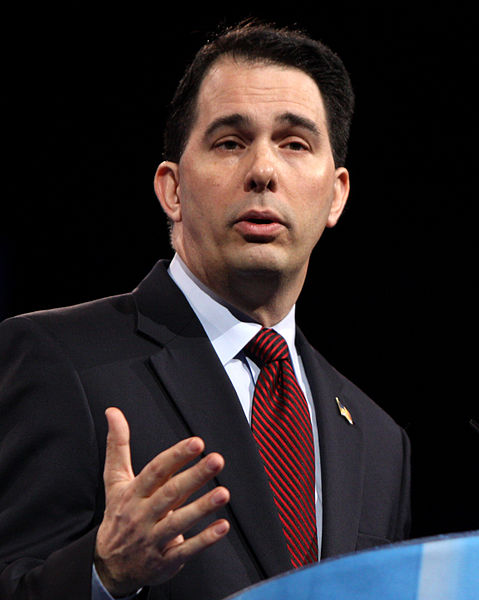Contrary to the assertions of Libertarian economist DanielMitchell and conservative columnist Charles Krauthammer, right-to-work is not a
conflicted attack on unions, but a reform which respects workplace fairness and
equity. In 2015, Republican lawmakers in Wisconsin want to initiate this policy.
Because of political pressures at home and nationally, Wisconsin Governor Scott
Walker now confronts his own right-to-work dilemma.
In 2011, Walker faced an uphill fight following the
introduction of collective bargaining reforms. Labor unions from all over the
world descended on the state capital to stop the bill. Democratic legislators fled to Illinois to
disrupt the quorum process, and the Wisconsin business climate suffered for a
period of time because of the illegal walk-outs from public sector employees,
who demonstrated vigorously.
 |
| Walker faces right-to-work dilemma |
Walker most likely fears that a Wisconsin right-to-work law
will incite labor union violence in Madison, and he has a right to worry.
Michigan Governor Rick Snyder demurred on right-to-work precisely because of potential
union thuggery, on the streets and at the ballot box.
Walker has a responsibility
to ensure efficiency and safety in his state, as well as fiscal, legal, and
moral policy reforms. Besides, the governor has other problems to consider,
like resolving a budget shortfall, sizing up the required steps for a balanced
budget, yet also seizing the opportunity to expand school choice, cut taxes,
and reduce spending.
Walker supporters (and detractors) should understand his
reticence, even if they believe (as I do) that he should support right-to-work
and sign the measure into law.
No comments:
Post a Comment